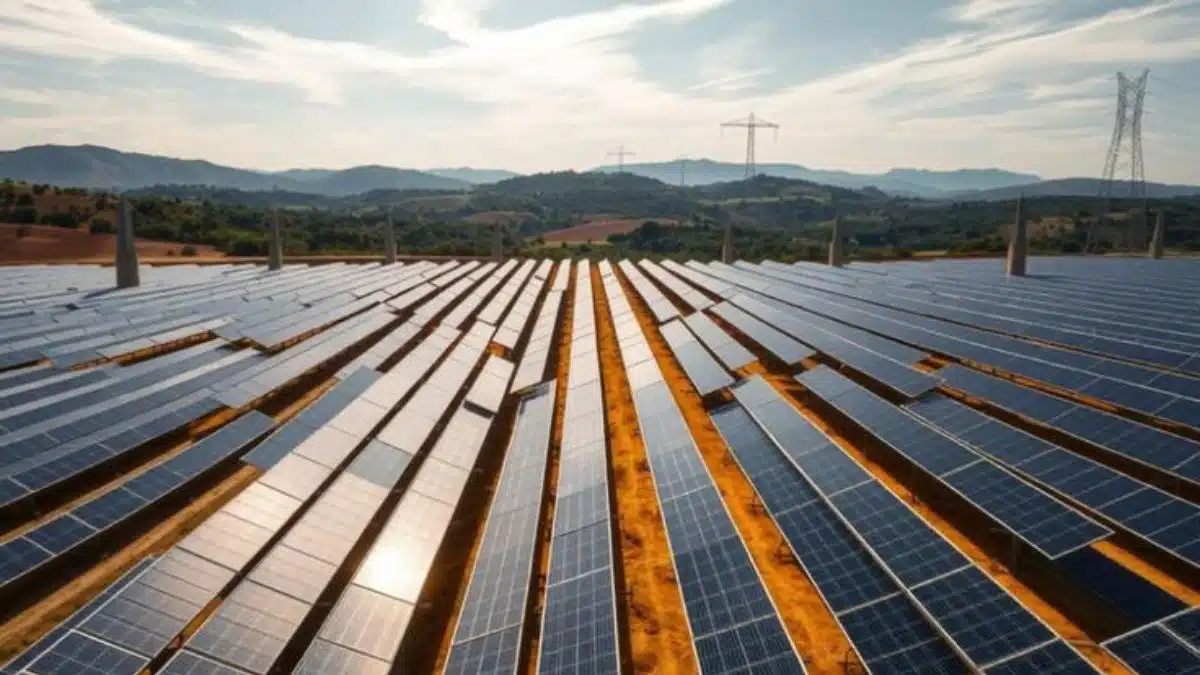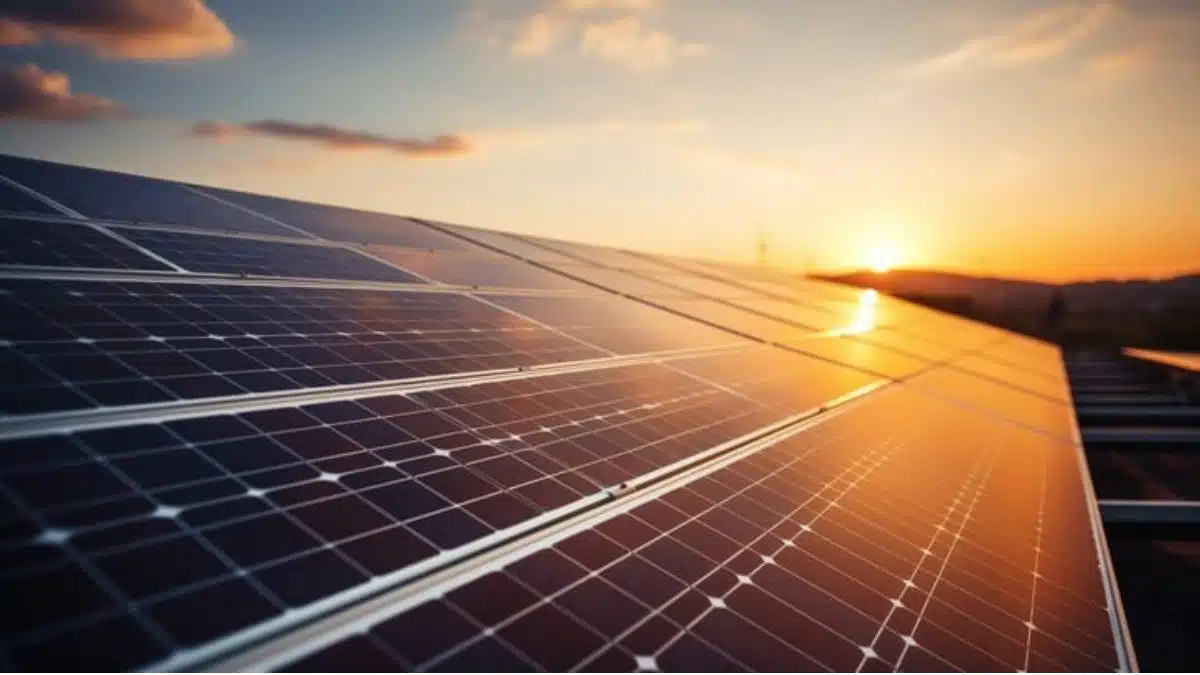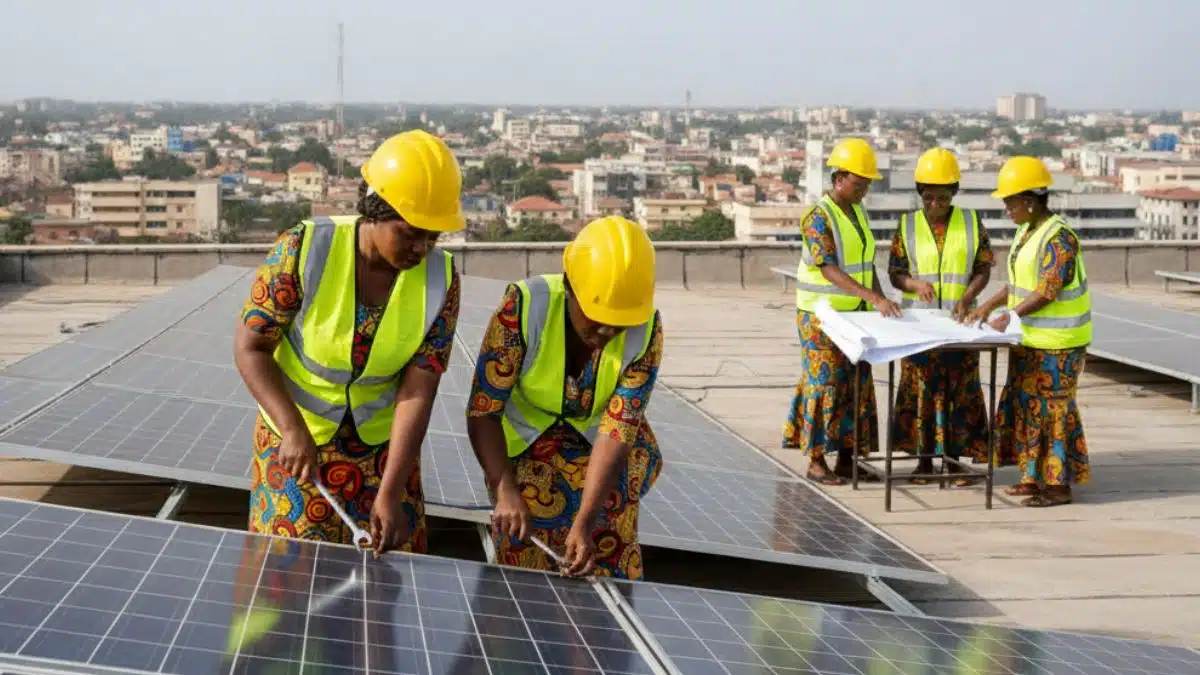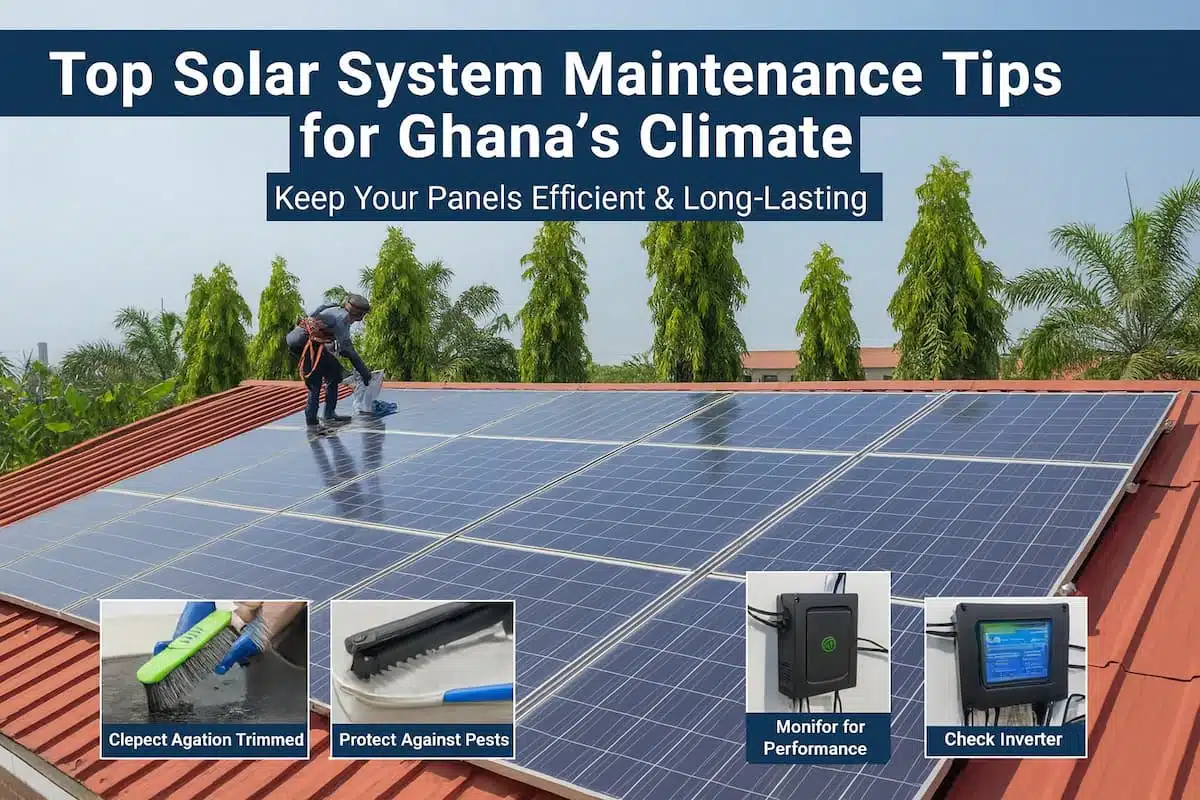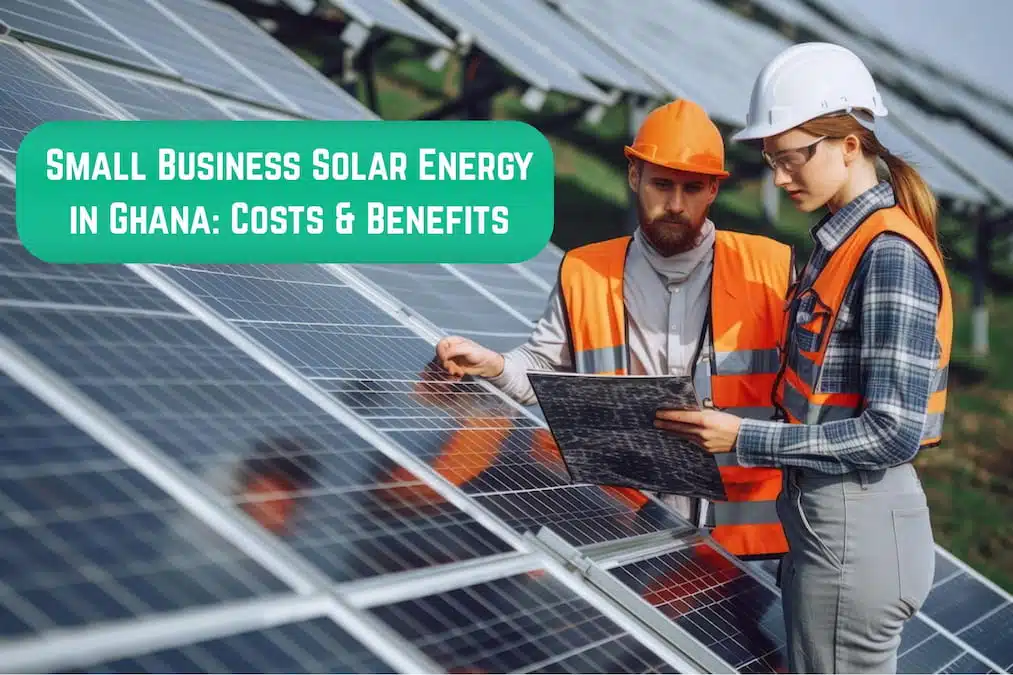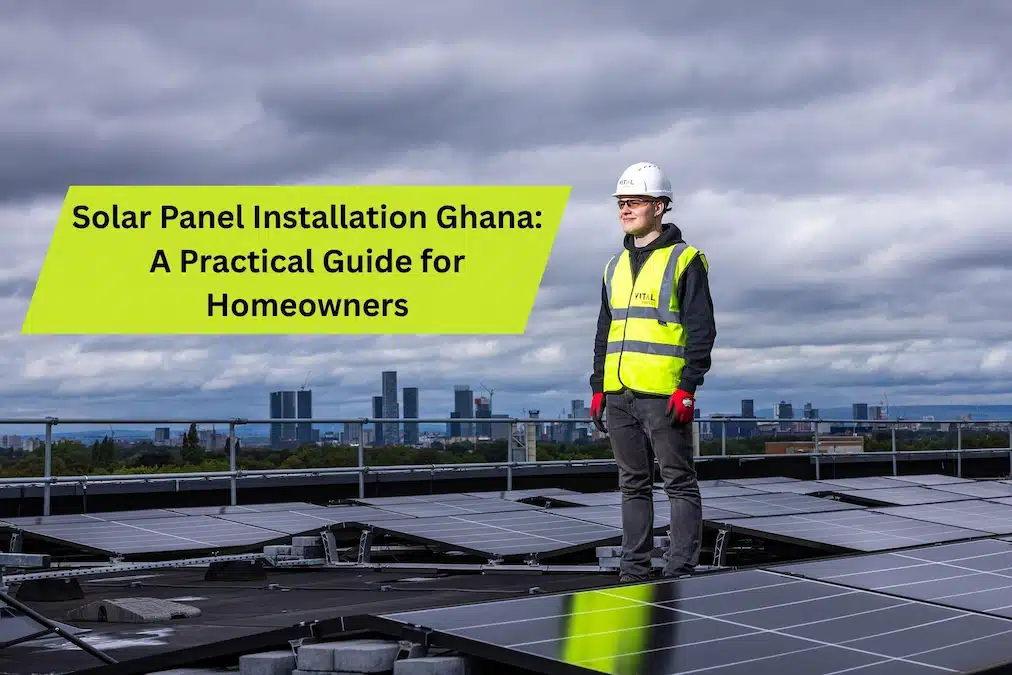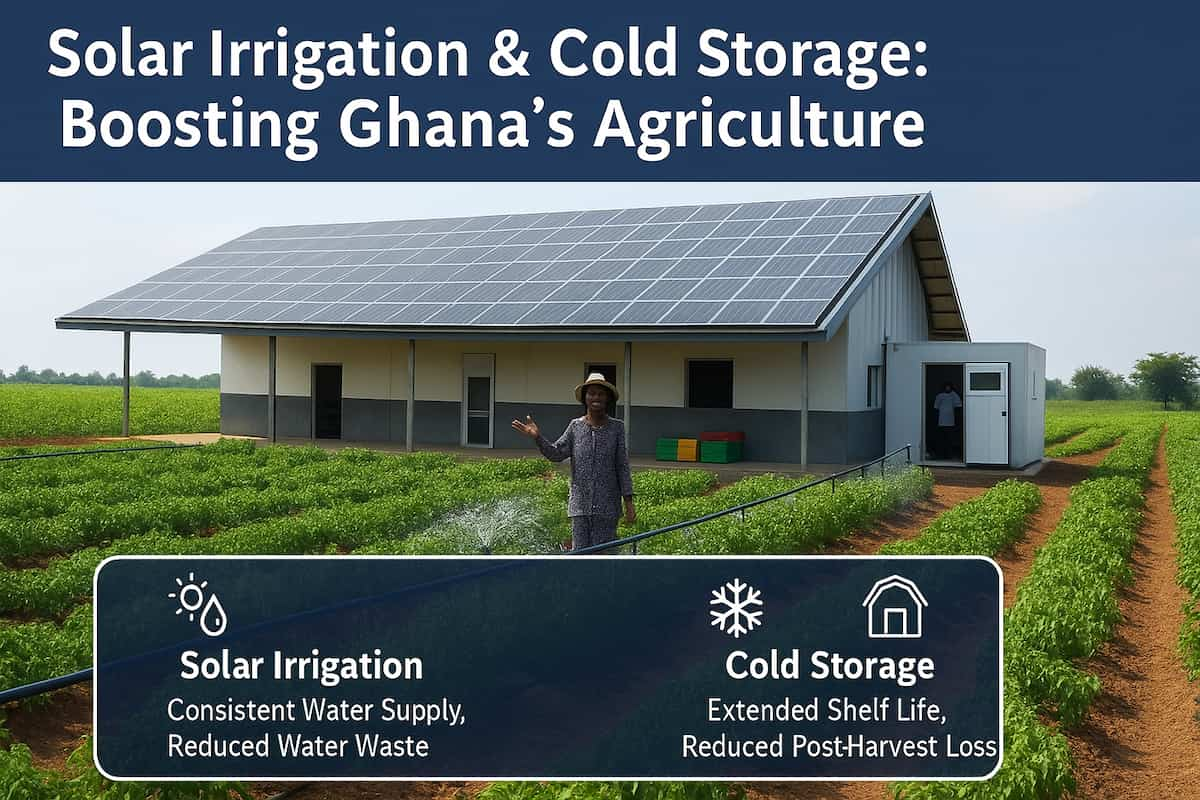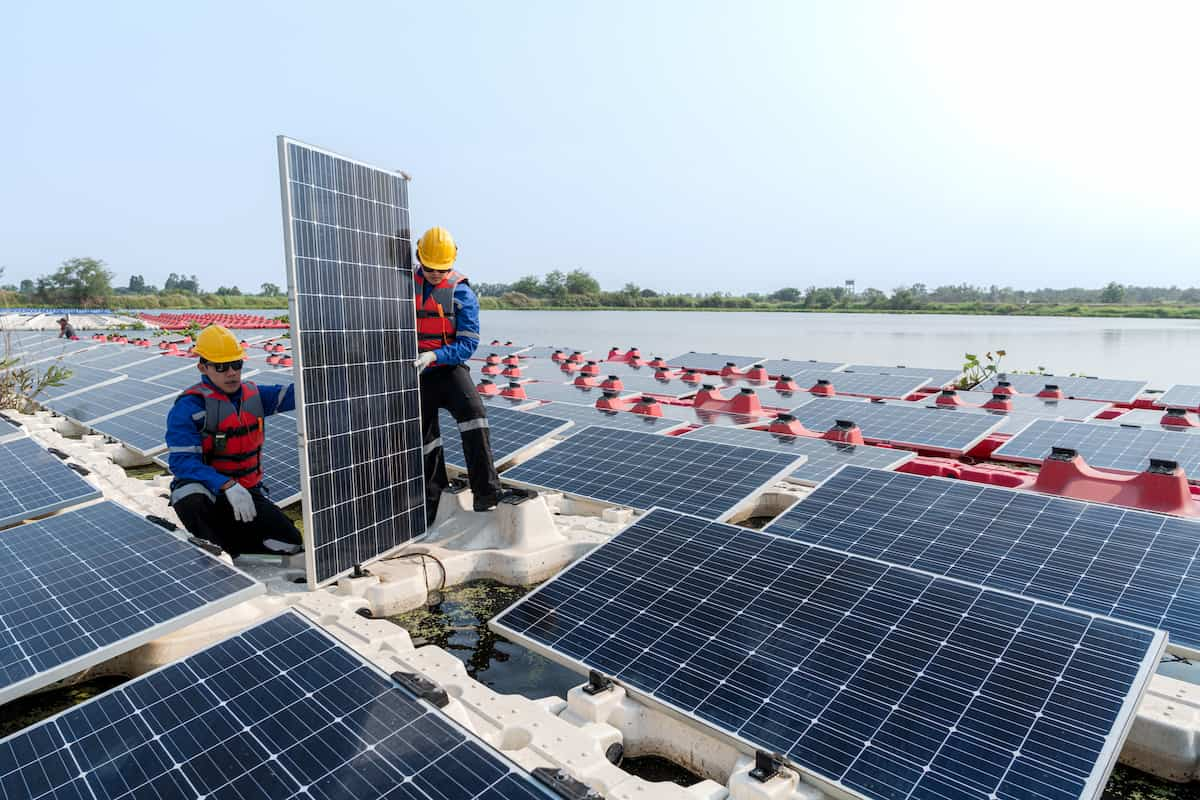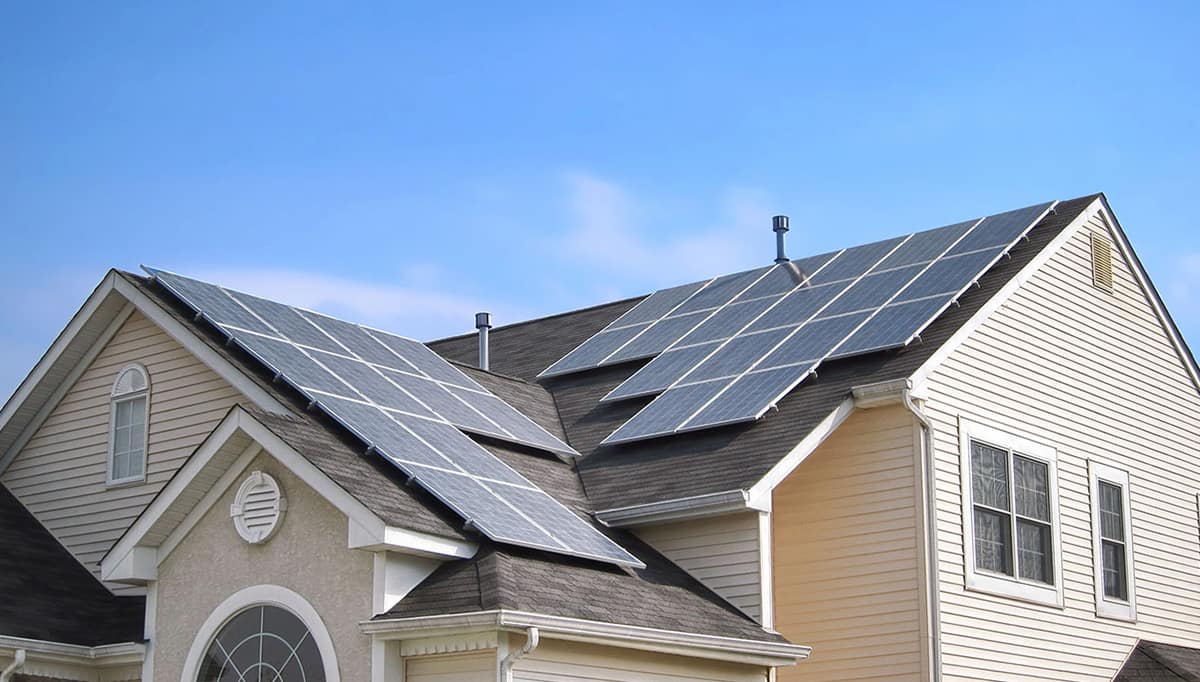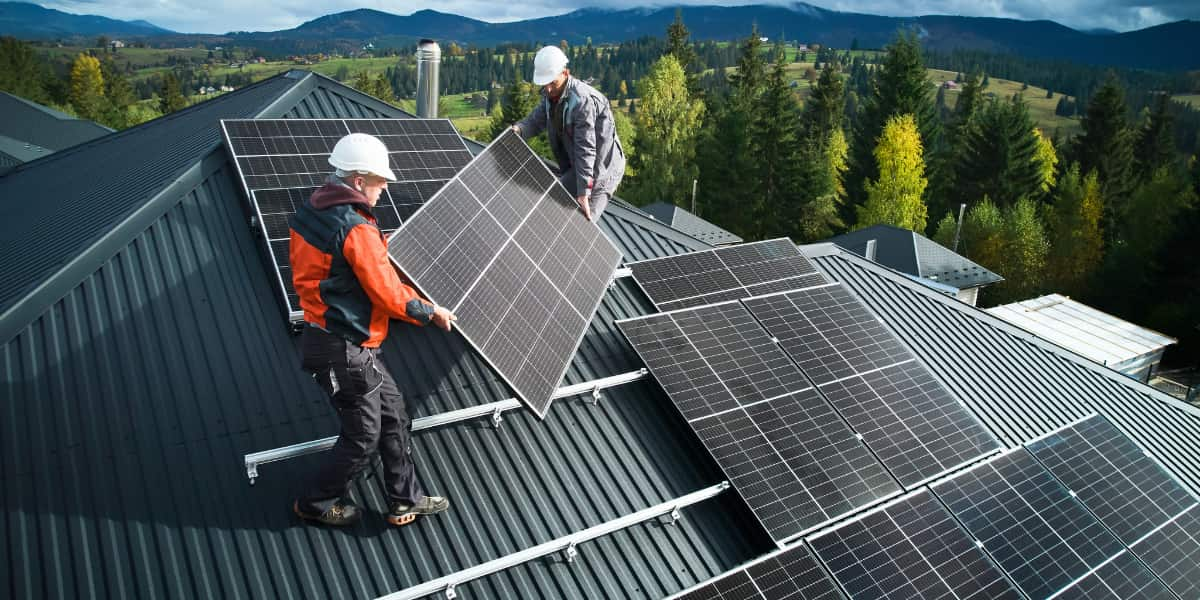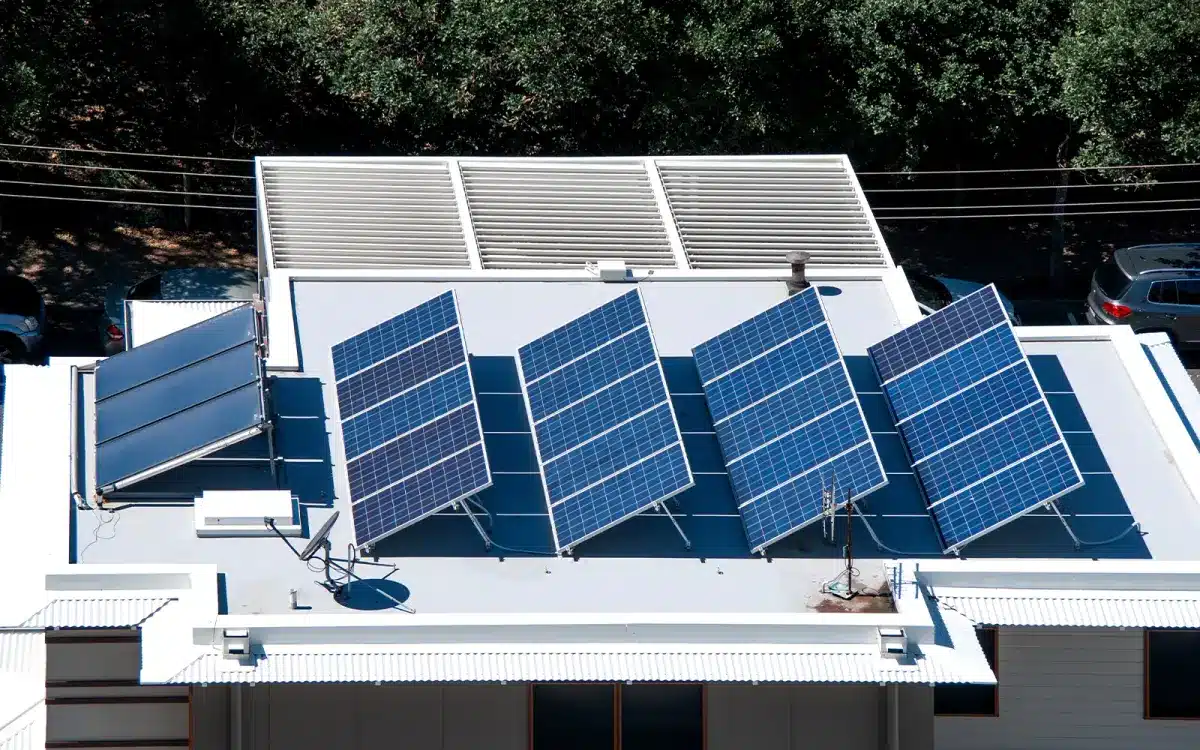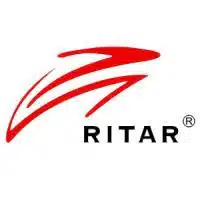Blogs
Step-By-Step Guide to Installing Solar Panels in Ghana: Expert Tips
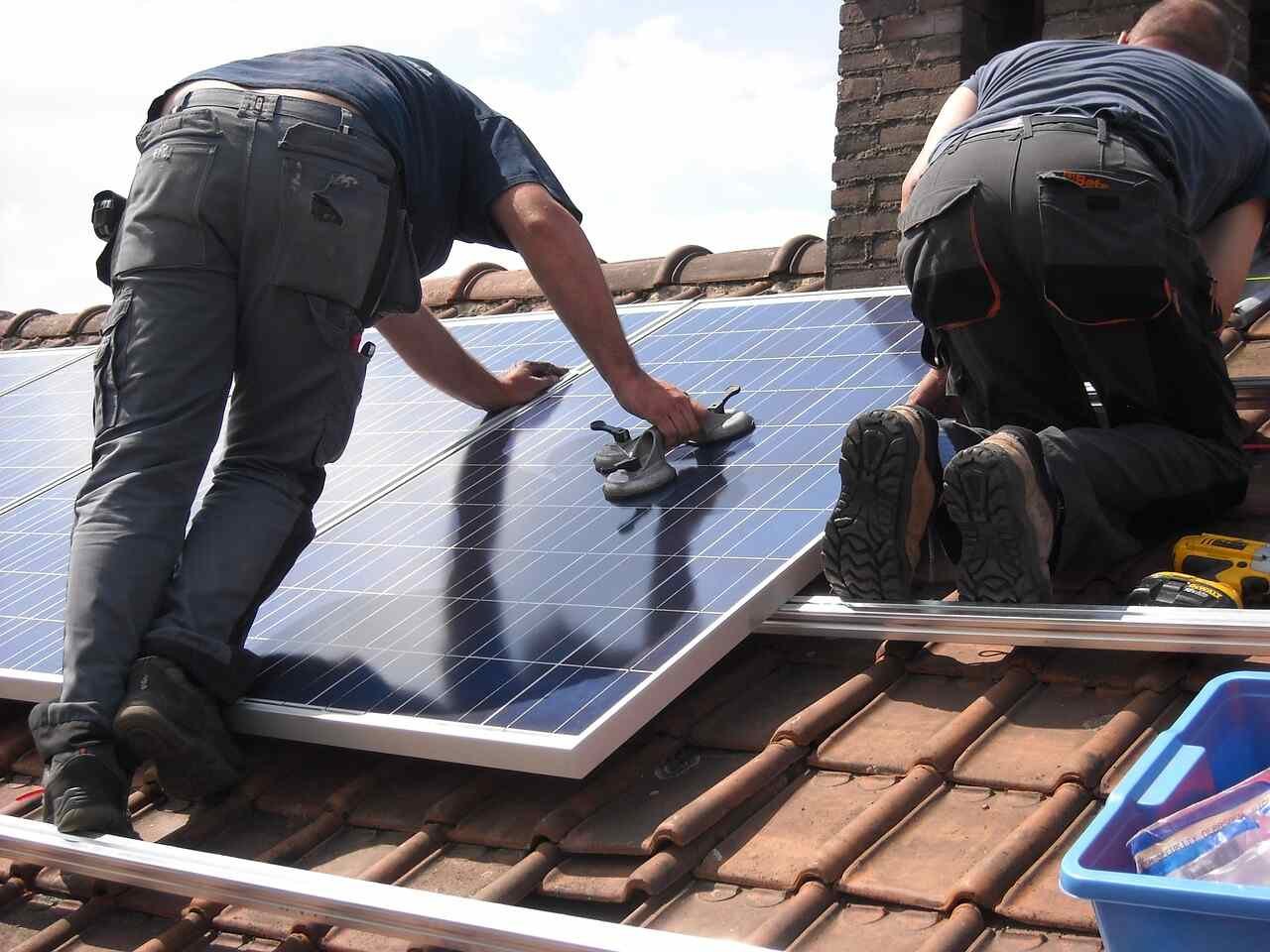
Installing Solar Panels in Ghana is an eco-friendly solution to reduce energy costs and embrace renewable energy. Learn the steps and expert tips to get started.
In this guide, you will learn how to install solar panels in Ghana step-by-step. Solar energy is becoming more popular in Ghana due to its abundant sunshine. By using solar panels, homes and businesses can have a reliable and eco-friendly power source.
This guide aims to make the installation process clear and simple. Whether you’re a homeowner or a small business owner, understanding each step will help you make the switch to solar energy efficiently. Let’s dive into the details and start your journey to energy independence.
Introduction To Solar Panels In Ghana
Ghana is blessed with abundant sunlight throughout the year. This makes it an ideal location for solar energy solutions. Many households and businesses are exploring solar panels as an alternative energy source. In this guide, we will walk you through the benefits of solar energy, the current adoption rate in Ghana, and how to install solar panels step-by-step.
Benefits Of Solar Energy
Solar energy offers numerous benefits, especially in a country like Ghana where sunlight is abundant. Here are some key advantages:
- Cost Savings: Solar energy can significantly reduce electricity bills.
- Renewable Energy Source: Solar power is a sustainable and renewable energy source.
- Low Maintenance Costs: Solar panels require minimal maintenance once installed.
- Environmental Impact: Solar energy reduces greenhouse gas emissions.
Current Adoption Rate
The adoption of solar panels in Ghana has been steadily increasing. Many factors contribute to this growth, including:
- Increased awareness of the benefits of solar energy.
- Technological advancements making solar panels more efficient and affordable.
- Rising electricity costs pushing consumers to seek alternative energy sources.
According to recent data, the number of solar panel installations has doubled over the past five years. This trend is expected to continue as more people recognize the long-term benefits of solar energy.
| Year | Number of Installations |
|---|---|
| 2018 | 5,000 |
| 2019 | 7,500 |
| 2020 | 10,000 |
| 2021 | 15,000 |
| 2022 | 20,000 |
With continuous support and investment, solar energy could become a primary energy source in Ghana. This would lead to a more sustainable and eco-friendly future.
Assessing Your Energy Needs
Before installing solar panels in Ghana, you must assess your energy needs. This step ensures you choose the right system size. It also helps you calculate how much energy you consume. This process is essential to ensure your solar panels meet your daily power requirements.
Calculating Energy Consumption
To start, you need to calculate your household’s energy consumption. This involves checking your monthly electricity bills. Look for the kilowatt-hours (kWh) used each month. This information is crucial.
Next, list all the appliances you use. Include their wattage and average hours of use per day. Here is a simple table to help you:
| Appliance | Wattage (W) | Hours Used Per Day | Daily Consumption (Wh) |
|---|---|---|---|
| Refrigerator | 150 | 24 | 3600 |
| TV | 100 | 4 | 400 |
| Lights | 60 | 6 | 360 |
Sum up the daily consumption of all appliances. This gives you an idea of your total daily energy needs.
Determining System Size
With your daily energy consumption calculated, you can determine your solar panel system size. First, consider the average sunlight hours in your area. In Ghana, you can expect about 5 hours of peak sunlight per day.
Use this formula to find the system size:
System Size (kW) = Daily Energy Consumption (kWh) / Average Sunlight Hours
For example, if your daily energy consumption is 10 kWh, the system size needed would be:
10 kWh / 5 hours = 2 kW
Therefore, a 2 kW system should meet your energy needs.
Remember, accurate calculations are vital. They ensure your solar panel system provides enough power.
Choosing The Right Solar Panels
Installing solar panels in Ghana can be a wise investment. Choosing the right solar panels is crucial for long-term benefits. This section provides a step-by-step guide to help you make an informed decision. Understanding different types, their efficiency, and durability will ease your selection process.
Types Of Solar Panels
There are three main types of solar panels:
- Monocrystalline Solar Panels: These are made from a single crystal structure. They are known for high efficiency and longevity.
- Polycrystalline Solar Panels: These are made from multiple crystal structures. They are less efficient than monocrystalline but more affordable.
- Thin-Film Solar Panels: These are made from layers of photovoltaic material. They are flexible and lightweight but have lower efficiency.
Efficiency And Durability
Installing Solar Panels in Ghana ensures energy efficiency and durability. Discover expert tips and a step-by-step guide to make the most of solar power for your home or business. Higher efficiency means more energy production.
| Type of Solar Panel | Efficiency Range | Durability |
|---|---|---|
| Monocrystalline | 15%-20% | 25-30 years |
| Polycrystalline | 13%-16% | 20-25 years |
| Thin-Film | 10%-12% | 10-20 years |
Monocrystalline panels are the most efficient and durable. They are ideal for areas with limited space. Polycrystalline panels offer a balance between cost and efficiency. Thin-Film panels are less efficient but lightweight and flexible, suitable for larger areas.
Consider your specific needs and budget. This will guide you to the right choice. Investing in high-quality solar panels ensures better performance and longer life.
Finding A Reliable Installer
Installing solar panels is a significant investment. It is crucial to find a reliable installer in Ghana. Choosing the right installer ensures the efficiency and longevity of your solar system. Below, we break down the steps to finding a trustworthy installer.
Qualities To Look For
When selecting a solar panel installer, there are certain qualities you should consider:
- Experience: Look for an installer with years of experience in the industry. Experienced installers understand the local climate and regulations.
- Certification: Ensure the installer is certified by recognized bodies. Certification guarantees they meet industry standards.
- Reputation: Check online reviews and ask for references. A good reputation reflects quality service and customer satisfaction.
- Warranty: A reliable installer offers a strong warranty on both the panels and their work. This provides peace of mind for the future.
Questions To Ask
Asking the right questions helps you gauge the installer’s expertise and reliability:
- What is your experience with solar installations in Ghana? This question helps you understand their familiarity with local conditions.
- Can you provide references or case studies? References give you insights into their past work and customer satisfaction.
- What certifications do you hold? Ensure they have the necessary certifications for the job.
- What type of warranty do you offer? A good warranty indicates the installer’s confidence in their work.
- How long will the installation take? Knowing the timeline helps you plan accordingly.
Taking the time to find a reliable installer ensures a smooth and efficient solar panel installation process. Keep these tips in mind to make an informed decision.
Preparing Your Site
To install solar panels successfully in Ghana, the preparation of your site is crucial. Proper planning ensures maximum efficiency and longevity of your solar system. This section covers everything you need to know about preparing your site for solar panel installation.
Roof Assessment
Your roof is the foundation for your solar panels. Assessing the roof is the first step. Check the condition of the roof. Is it sturdy enough to hold the panels? Look for any damage or weak spots.
- Inspect the roof material. Tiles, metal, and asphalt shingles are ideal.
- Ensure the roof is less than 10 years old.
If the roof needs repairs, handle them before installation.
Shading And Positioning
Shading and positioning are vital for the efficiency of your solar panels. The panels need direct sunlight to produce energy. Avoid areas with shade from trees, buildings, or other structures.
- Identify the sun’s path throughout the day.
- Ensure the panels face the direction with maximum sunlight exposure.
In Ghana, the optimal direction is usually facing south.
Use tools like solar pathfinders or apps to check for potential shading issues.
Installation Process
Installing solar panels in Ghana is a smart way to reduce electricity costs. This step-by-step guide helps you understand the installation process. Let’s break down the steps for a smoother experience.
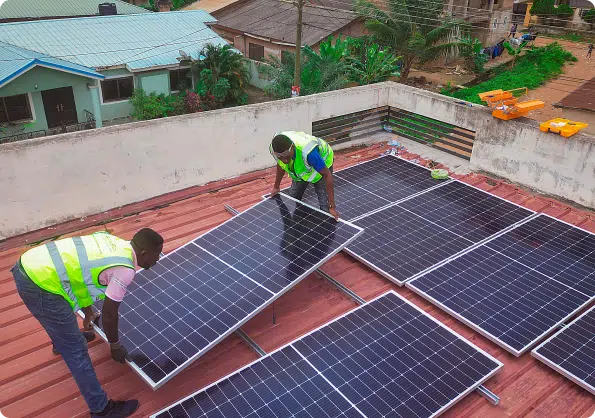
Mounting The Panels
First, choose the right location for your panels. The roof is often the best spot. Ensure it faces the sun for maximum exposure. Use a sturdy mounting system to secure the panels. Follow these steps:
- Measure the area to know how many panels fit.
- Install the mounting brackets securely.
- Attach the panels to the brackets.
Check that the panels are fixed firmly. Safety is crucial here.
Electrical Connections
Now, connect the panels to your home’s electrical system. This part involves several steps:
- Wiring the panels together.
- Connecting the panels to an inverter.
- Linking the inverter to your electrical panel.
Ensure all connections are tight and secure. An electrician may be needed for this step. Proper connections prevent issues and ensure safety.
Finally, test the system to ensure everything works well. Monitor the output to check efficiency. This completes the installation process.
Connecting To The Grid
Connecting your solar panel system to the grid in Ghana is a crucial step. It allows you to share excess energy and ensure a steady power supply. This section provides a detailed guide on the process.
Net Metering
Net metering helps you balance energy consumption and production. It allows you to send surplus energy back to the grid.
Here are the steps to set up net metering:
- Contact your utility company to apply for net metering.
- Install a bi-directional meter to track energy flow.
- Ensure your solar system meets the utility company’s standards.
- Sign a net metering agreement with the utility company.
Legal Requirements
Before connecting to the grid, you must comply with Ghana’s legal requirements. These regulations ensure safety and reliability.
Key legal steps include:
- Obtain necessary permits from the Energy Commission of Ghana.
- Ensure your installation follows local building codes.
- Hire a licensed installer for the solar panel system.
- Complete inspections by local authorities and utility companies.
Compliance with these requirements ensures a smooth and safe connection to the grid.
Maintenance And Upkeep
Maintaining your solar panels ensures optimal performance and longevity. Regular upkeep can significantly enhance energy efficiency. This section provides a step-by-step guide to the maintenance and upkeep of solar panels in Ghana.
Cleaning The Panels
Clean solar panels produce more energy. In Ghana, dust and debris can accumulate. Follow these steps to clean your panels:
- Turn off your solar system.
- Use a soft brush or a sponge.
- Gently scrub the surface with mild soap and water.
- Rinse with clean water and let them air dry.
Do not use abrasive materials. They can scratch the surface and reduce efficiency.
Regular Inspections
Regular inspections help detect potential issues early. Perform these checks:
- Visual Inspection: Look for cracks, dirt, and shading from trees.
- Electrical Check: Ensure wiring and connections are secure.
- Performance Monitoring: Compare daily output to expected figures.
If you notice a drop in performance, address the issue immediately. Professional inspections are recommended at least once a year.
Keep a log of all maintenance activities and inspections. This helps in tracking the performance and identifying recurring issues.
Proper maintenance and upkeep ensure your solar panels operate efficiently. Regular cleaning and inspections can significantly extend the life of your system.
Cost And Financing Options
Installing solar panels in Ghana requires an understanding of the cost and financing options. This section will help you navigate through the initial investment.
Initial Investment
The initial investment for solar panels in Ghana can vary. Several factors influence the cost:
- Size of the solar panel system
- Quality of the solar panels
- Installation charges
- Additional equipment like inverters and batteries
On average, a basic solar panel system for a small home might cost between $3,000 and $5,000. For larger homes or businesses, the cost could go up to $20,000 or more.
It’s important to get multiple quotes from different suppliers. This ensures you get the best deal and quality service.
Frequently Asked Questions
How To Start Installing Solar Panels In Ghana?
To start, assess your energy needs and budget. Research reliable solar panel providers in Ghana. Contact a certified installer for a site evaluation. Obtain necessary permits and approvals.
What Are The Benefits Of Solar Panels In Ghana?
Solar panels reduce electricity costs and reliance on the grid. They provide a renewable energy source, decreasing carbon footprint. They also offer energy independence and can increase property value.
Are Solar Panels In Ghana Cost-effective?
Yes, solar panels are cost-effective in Ghana. They reduce electricity bills and have low maintenance costs.
How Much Sunlight Does Ghana Receive?
Ghana receives abundant sunlight year-round. The average solar radiation is about 4-6 kWh per square meter daily. This makes it ideal for solar panel installations.
Conclusion
Installing solar panels in Ghana is a worthwhile investment. It helps save money and supports green energy. The process is simple with the right steps. Always choose quality materials and trusted installers. Maintain your solar panels regularly for best performance.
This guide provides a clear pathway to a successful installation. Embrace solar energy and enjoy its long-term benefits. Start your journey today and contribute to a greener future in Ghana.








